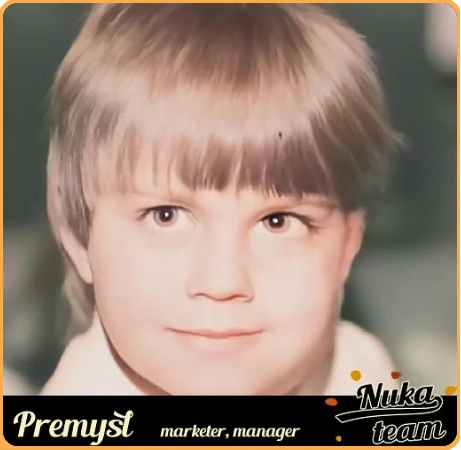English
Marijuana and sleep can be a great sleep aid. Maybe that’s why many people have it right next to their bed. Even people who suffer from severe insomnia can find their way back to dreamland thanks to the calming effects of indica. Most users believe that cannabis has a positive effect on our sleep, but it’s not that simple. For example, did you know that cannabis can suppress dreams? Or that older cones induce drowsiness compared to freshly dried ones? Let’s explore this information together.
First one: CBD and THC have different effects on sleep
You have probably already learned that there are different types of varieties. Some cause psychoactivity (higher THC ratio), some do not (higher CBD ratio). And then there are those where the ratio of THC to CBD is almost normal. So which to choose for a better night’s sleep?
A lot of studies are focusing their research on varieties with higher THC ratios, so we don’t have exact information on the effects of CBD yet. However, there is one study in which 72 people had trouble sleeping. Two-thirds were found to have better sleep after taking CBD for a month.
However, it should be added that one quarter of these participants had worsened symptoms. The researchers therefore believe that the effect of CBD in this case is more individual.
So you can try both CBD varieties and those with a higher THC ratio.
Second: Not all varieties have the same characteristics
There are popular opinions that indica is heavy and has a soporific effect as opposed to sativas which are uplifting. Sometimes this can be close to the truth, but you shouldn’t always rely on it.
Remember, or perhaps make some notes, what varieties have successfully helped you sleep better. Did they have higher amounts of THC or CBD? What was their particular terpene profile? These may be silly questions, but with the right answers, maybe you’ll find a unique variety.
Third: Natural remedies help improve the effects of marijuana
Cannabis is a great way to prepare for a restful sleep, but if you pair it with another natural sleep aid, you may get even better results.
Good examples of this are hops, chamomile or lavender. These plants contain important terpenes that are also found in cannabis, but in much higher concentrations. So their inclusion is not necessarily detrimental, quite the opposite.
So for your “sleeping varieties” you can make, for example, a chamomile tea or a lavender bath.
Fourth: Marijuana makes you fall asleep faster
Since marijuana can reduce stress levels and help you to physically relax, it’s no surprise that it makes you fall asleep earlier. This is greatly appreciated by people who suffer from pain, insomnia, post-traumatic stress, sclerosis and other disorders that have insomnia as a symptom.
It should be noted that cannabis edibles work too, but they take somewhat longer to work. On the other hand, when the effects kick in, you sleep a little longer than before.
Fifth: A “hangover” may occur
Have you ever woke up in the morning and you were a little out of it? That’s a “cannabis hangover”. Of course, it’s not like after an alcohol binge where you throw up all day and every sound is like a blow to the head.
In this type of hangover, you’re more likely to experience dehydration, dry eyes, mild malaise. If this has never happened to you, hats off and congratulations. You usually get hangovers after using low-quality or pesticide-soaked marijuana.
And how do you avoid this? The very easiest is to drink lots of water and then eat healthy food, take some vitamins and get some exercise. Just like a classic hangover.
Sixth: Marihana can reduce the REM stage of sleeping and dreaming
What you will miss when you consume cannabis for a long time are dreams. Dreaming begins when you enter the last stage of the sleep cycle, called REM sleep. Apparently, taking cannabis before bed reduces the amount of time you spend in the REM phase, so you won’t have dreams as often or as intense.
Of course, the opposite also happens. After you stop long-term cannabis use, you may experience increased REM sleep activity, where you will experience more dreams and they will be more intense.
Seven: Cannabis can help you breathe better
Sleep apnoea is characterised by breathing problems that can last from a few seconds to several minutes. As you can imagine, waking up during the night will then affect your next day. You are sleepy, tired, have a headache, lack concentration and mood swings. About like not having your morning coffee and then having a tendency to strangle your colleague for some stupid comment.
A 2013 study showed how cannabis could change this. It examined the effectiveness of an exogenous cannabinoid known as dronabinol (part of THC). Out of 17 participants, success was seen in 15 of them, with 21 days of treatment.
More research will need to be done, but it is a promising start.
Eighth: stopping long-term use can worsen sleep
If you have ever stopped using marijuana or taken a break from it, then this point may apply to you. You toss and turn, roll over, don’t know how to lie down, or feel sleepy the next day.
Experts agree that after long-term cessation of marijuana use, you may experience reduced sleep time, decreased sleep efficiency, shortened REM phase, long wake times, or trouble falling asleep.
But the researchers note that their findings are limited because they had few test subjects and could not pinpoint the cause.
Ninth: marijuana use at a young age can cause sleep problems
Cannabis use in people under the age of 15 can cause sleeping problems, specifically at puberty when our bodies are developing rapidly. This effect can persist into adulthood.
The key word here is ‘can’. While the studies stand by their claims here, it has not yet been confirmed whether cannabis actually disrupts sleep in young adolescents. There may be more causes of insomnia in this case, but more research is needed on that.
Published by Kotelnik
17/02/2022choose and buy cannabis seeds from our offer
our pleasure





























